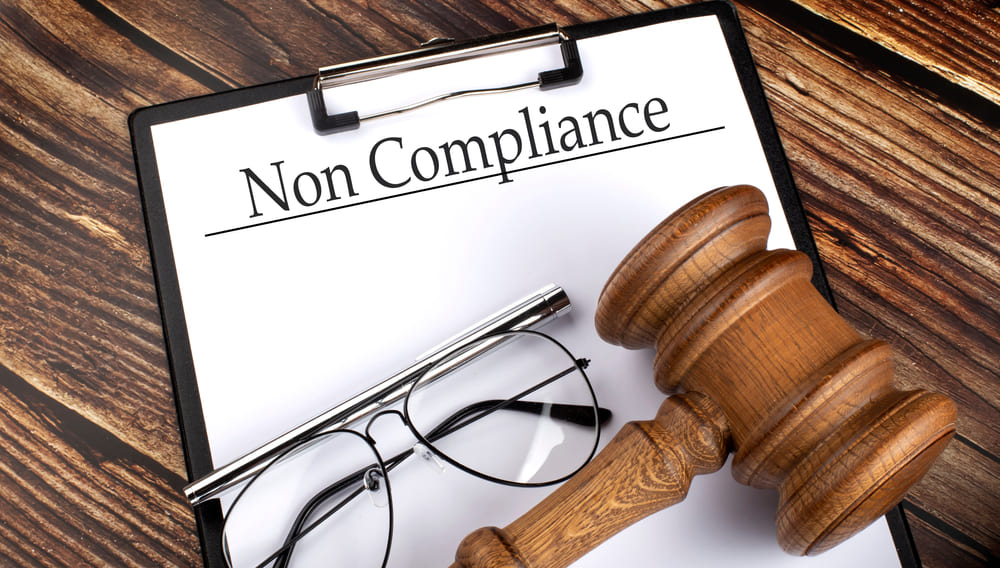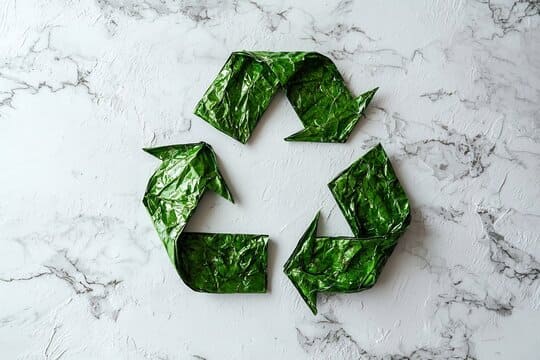The “simpler recycling legislation” marks the most significant update to England’s recycling rules in years. With the regulations now in effect, businesses of varying sizes and sectors across the country are adapting to new requirements around how waste must be sorted and collected. Here we will explain what the legislation involves, what your business needs to do to stay compliant, and how Restore Recycle can support you in making the process as seamless as possible.

What is the simpler recycling legislation and why was it introduced?
The simpler recycling legislation is part of the UK government’s ongoing endeavour to reduce waste, cut carbon emissions, and boost recycling rates. Simply put, it aims to standardise how waste is collected and sorted across England. Before, various councils had different recycling rules, meaning what you could recycle in one borough might be completely different to another. It was confusing for households and businesses alike. The simpler recycling legislation UK initiative aims to fix that by making the system more uniform.
As of 31 March 2025, most businesses need to separate their waste into three specific streams:
- Dry mixed recyclables (things like paper, card, plastic, glass, and metal)
- Food waste
- General waste (also called residual waste)
No more guesswork, no more “wish-cycling” where items get discarded in the hope they’ll be recycled. Clear categories should make recycling more effective and decrease contamination rates. But why now? It’s because climate targets are looming and waste management is a big part of reaching net-zero. So, by introducing the new simpler recycling legislation, the government hopes to create a greener economy and help businesses play their part.
What are the benefits of simpler recycling legislation?

Under the previous system, prior to 31st March 2025, what you could recycle varied greatly between councils, potentially creating confusion for staff and customers. Now though, with simple standardised guidelines, everyone across England will follow the same rules around recycling

Clearer rules and better waste separation means fewer contaminants ending up in the recycling stream. With the new system, businesses are expected to see a significant improvement in the volume and quality of their recyclable materials.

General disposal attracts higher costs due to landfill taxes and processing fees, making it pricier than recycling. Effective waste separation reduces these costs. Learn more about landfill tax rates here.

Looking to reach net zero? Adopting the simpler recycling legislation is a straightforward way to shrink your company’s carbon footprint. Proper waste separation means less landfill use and fewer greenhouse gas emissions.

A strong environmental record is more than a nice-to-have, it’s a way for businesses to distinguish themselves from their competitors. Clients, customers, and investors much prefer to work with companies that demonstrate a genuine commitment to sustainability.

A well-implemented recycling system can streamline waste management processes. With clear signage, proper bin placement, and staff buy-in, the day-to-day handling of waste becomes quicker and easier.

What are the risks associated with non-compliance?
Ignoring the new rules isn’t really an option for businesses. The UK simpler recycling legislation has penalties for non-compliance, and anyone can report workplaces that do not follow the simpler recycling rules. Fines and enforcement action could be on the cards for those who fail to separate waste correctly. Beyond the legal risks, non-compliance could damage your business reputation, especially as more consumers and partners are placing importance on green credentials. It’s about demonstrating that your organisation is serious about sustainability and corporate responsibility.
How can businesses comply with simpler recycling legislation?
Here is a straightforward checklist to get you started:
- Review your current recycling protocols. This is as simple as assessing what systems are already in place. Then make sure you are separating food waste and recyclables in the three specific streams. If not, now is the time for an overhaul.
- Audit your waste streams and understand what types of waste your business generates. Manufacturing firms, for example, might have very different waste profiles to a tech office.
- Invest in the right bins. For employees to dispose of waste properly, clear, well-labelled bins are essential.
- Train your staff, as everyone needs to know how the system works. A few training sessions can go a long way towards improving compliance.
- Work with a trusted waste management partner as this is where things get much easier, a partner like Restore Recycle can help ensure you’re doing everything by the book.
- Keeping record and having proof of your waste management processes and compliance can save you headaches if you ever get audited.
Best practice tips for complying with simpler recycling legislation

Creating a culture of sustainability starts from the top. Leadership should champion recycling initiatives at work, and the entire organisation should be actively engaged in making recycling a normal and standard part of everyday work life.

Putting it simply, the greenest waste is the waste you don’t produce. Try to conduct regular reviews of your purchasing and operational habits, as this will help you identify ways to reduce waste before it even becomes a disposal issue.

Your team is key to your success. You can run awareness campaigns or organise eco-themed days to keep recycling practices at the top of your agenda.

Don’t leave recycling to guesswork. Invest in clear, visually engaging signage that shows, at a glance, what belongs in each bin.

Recycling isn’t a ‘set-and-forget’ task. As regulations evolve and your business grows, doing regular audits and reviews will help you stay on track. It’s also a great opportunity to refine your processes and adopt new technologies or practices that could improve your recycling rates even further.

If you don’t measure it, you can’t manage it, so set benchmarks and regularly track your recycling rates. Sharing progress reports with staff is also a good way to not only keep everyone informed but also build a strong sense of collective achievement.
How can Restore Recycle help ensure compliance with simpler recycling legislation?
At Restore Datashred, we understand that managing this change may feel daunting. That’s why we’ve launched Restore Recycle, to make compliance with the simpler recycling legislation for businesses UK a smooth and hassle-free process.
Here’s how we can help:
- Waste audits: We’ll take a deep dive into your current waste streams and pinpoint what needs to change.
- Customised solutions: Every business is different. We’ll design a waste management plan tailored to your needs.
- Reliable collections: Our scheduled collections ensure that your dry recyclables, food waste, and general waste are picked up promptly and correctly.
- Training and support: We’ll provide training materials and advice to get your team up to speed.
- Transparent reporting: Our service comes with environmental reporting so you can track your recycling progress and demonstrate compliance.
- Peace of mind: With Restore Recycle, you’re not just following the rules, you’re showing leadership in sustainability.
And of course, we’re committed to sustainability ourselves, with a zero-to-landfill policy and a fleet of electric vehicles to minimise our own carbon footprint.

Looking ahead: Embracing a greener future
The simpler recycling legislation represents a strong shift in how waste is managed across England, but it’s a positive one. By making recycling processes consistent and easier to understand, businesses have a real chance to make a lasting impact.
So, if you are ready to simplify your recycling and lead the way in sustainability? Get in touch with Restore Recycle today to find out how we can help your business stay ahead of the curve.
 Customer Login
Customer Login


